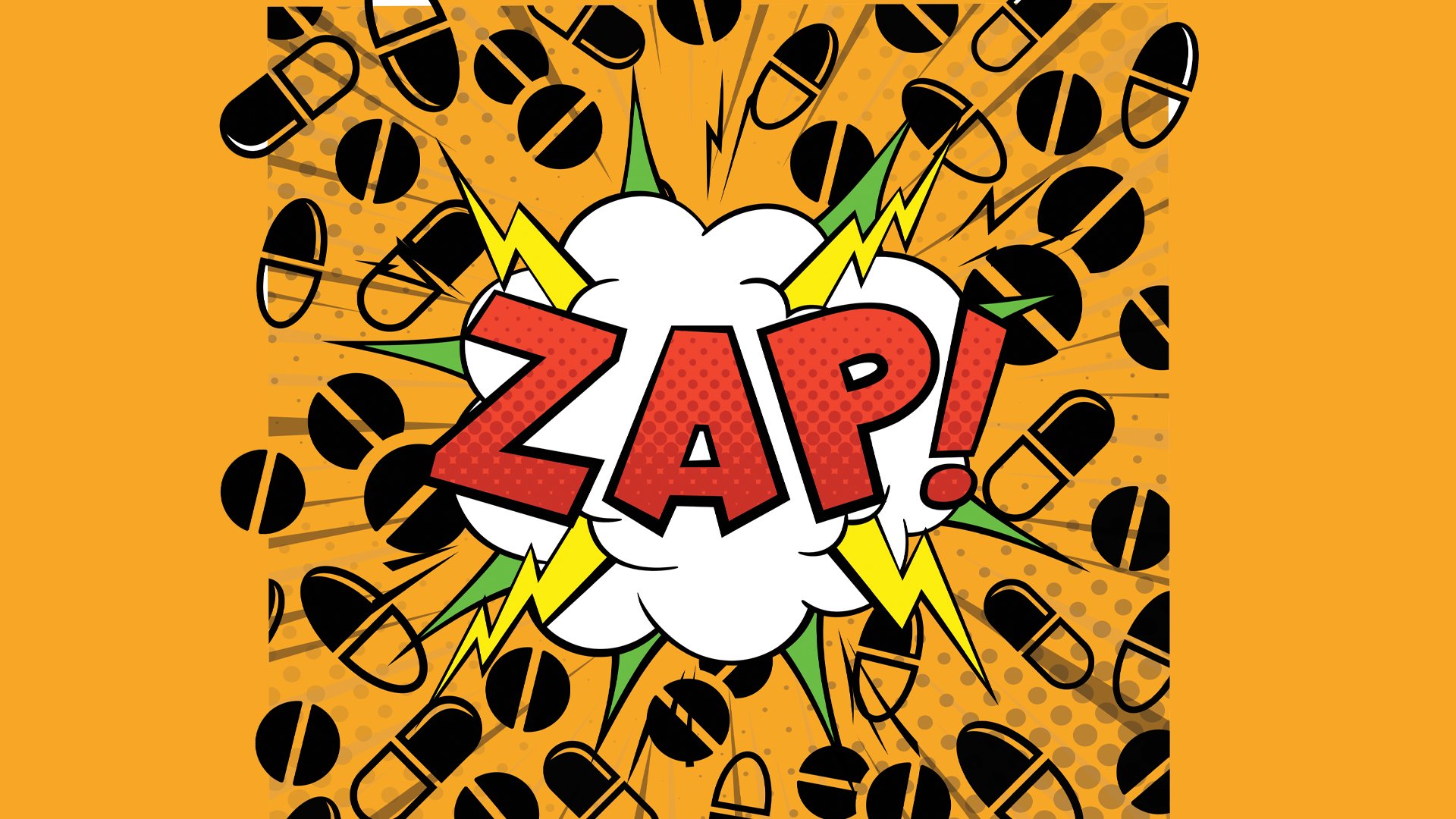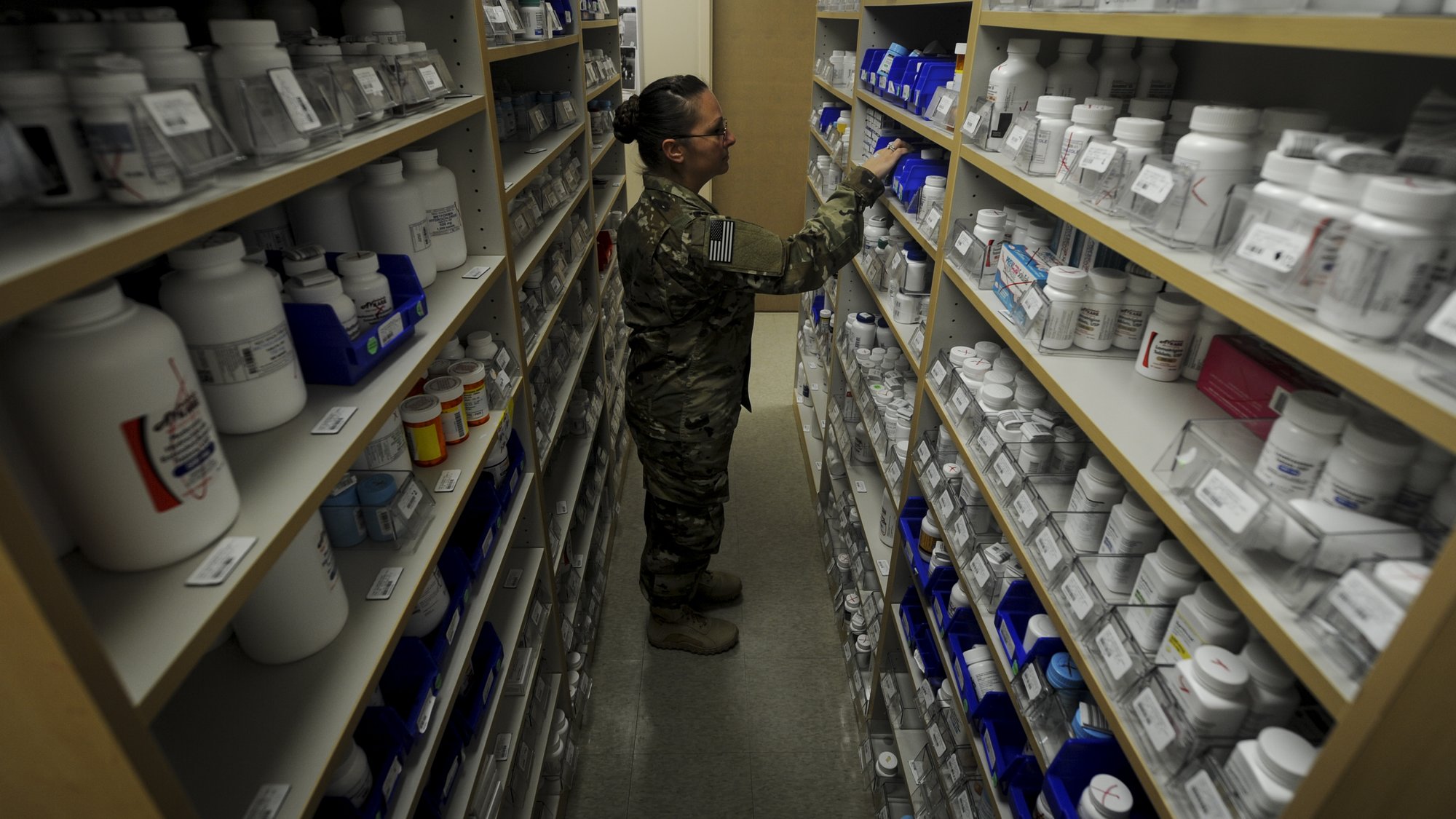Doc's Corner: Damn, This Headache Is Killing Me, What Should I Take?

Where's the Motrin? Photos courtesy of DVIDS and Adobe Stock, composite by Coffee or Die Magazine.
Pain is a message bringing awareness of injury to the person experiencing it. It may have physical and mental components and be mild to severe, sharp, dull, burning, or even referred pain felt elsewhere from the source.
In medical terms, pain can be classified as functional, nociceptive, neuropathic, or inflammatory. Functional pain, caused by hypersensitivity without a peripheral source, is beyond the scope of this discussion. Nociceptive pain is that instant feedback when you hurt yourself — sensory nerves at the site of pain, from small scratches to broken bones, transmitting the sensation to the brain. Neuropathic pain, in contrast, is due to nerve damage — pins and needles, numbness, stabbing, or burning with no clear cause. And then there’s inflammatory pain, caused by swelling that irritates the nerves.

That headache? Probably inflammatory. Sore muscles? Inflammatory. Even that throbbing from tweaking your knee? At least partially inflammatory.
But the good news is, inflammatory pain — unlike the others — can be attacked with readily available methods.
There are physical methods to decrease swelling, like icing or elevating the swollen extremity. For many, over-the-counter products are preferred and appropriate. But how much do you really know about them and what they can — and can’t — do? There are several available options that have similar actions, but they are easy to confuse.
Let’s start with two similar ones, aspirin and acetaminophen.

Store shelf with over-the-counter (OTC) pain relief products. The most common types of OTC pain medicines are acetaminophen and nonsteroidal anti-inflammatory drugs, or NSAIDs. Photo by sheilaf2002/Adobe Stock.
Aspirin (acetylsalicylic acid or ASA) comes in name brands like Bayer, Anacin, Bufferin, and Ecotrin. It fights inflammatory pain — headaches, soreness, minor burns — by blocking cyclooxygenase (COX) 1 and 2. COX 1 and 2 convert a chemical called arachidonic acid to prostaglandins, which create inflammatory chemicals in the body. Those with heart conditions may take an ASA daily because it inhibits platelets from sticking together. But its downside is that it blocks the formation of chemicals that help protect the stomach from developing ulcers and bleeding (which occurs over time and not as the result of occasional use). You should take ASA with food to help protect the stomach, or take the enteric-coated version. It’s also associated with a condition called Reye’s syndrome after viral illness. For fever, aspirin should be reserved for people older than 19. The dose is 325-650 milligrams every four to six hours, or a daily max of 4,000 mg.
Acetaminophen (APAP), widely known under the brand Tylenol, is thought to provide pain and fever relief by blocking prostaglandins in the central nervous system. The exact mechanism by which it does this is still unknown; some believe it acts on COX 1 or 2, like ASA. It is safe up to 4,000 mg a day but can cause liver damage at higher doses.

"Now where is that Motrin ...?" Tech. Sgt. Christina Easter, a pharmacy flight chief with the 1st Special Operations Medical Group, retrieves medication for a prescription refill at Hurlburt Field, Florida, July 11, 2017. US Air Force photo by Airman 1st Class Dennis Spain.
The most common OTCs are nonsteroidal anti-inflammatory drugs, or NSAIDs, of which the most famous is Motrin. The common joke in the military is to take Motrin and drink water and/or change your socks for any sort of pain. NSAIDs can be taken with APAP and ASA but should be used with caution by those with kidney disease, diabetes, high blood pressure, and other diseases.
My main issue with NSAIDs is that there are so many of them, and the risk of taking multiple NSAIDs without knowing it is real. If you are looking to treat pain with OTC drugs, use only one of the following at a time.
- Ibuprofen. Many name brands including Advil, Addaprin, Cedaprin, I-Prin, Midol, Motrin, Motrin IB, NeoProfen, Profen IB, Proprinal, Ultraprin. Take 400 mg every four hours. Daily max: 3,200 mg.
- Ketorolac. Known as Toradol. Take 10 mg every four to six hours, max 40 mg.
- Celecoxib. Known as Celebrex. The dose is 100-200 mg per day depending on weight, max 400 mg.
- Naproxen. Sold as Aleve, Anaprox, Anaprox DS, EC-Naprosyn, Flanax, Naprelan, Naprosyn. Dose: 750-1,000 mg, max 1,250 mg.
And there are more, including indomethacin (Indocin, Tivorbex), piroxicam (Feldene), meloxicam (Mobic), and diclofenac (Cambia, Cataflam, Voltaren-XR, Zipsor, Zorvolex). All are NSAIDs, so they should never be combined.
This article first appeared in the Fall 2022 edition of Coffee or Die’s print magazine.
Read Next: Doc’s Corner: What If We Could Treat PTS Before It Occurs?

Dr. Andrew D. Fisher is a graduate of Texas A&M University College of Medicine and is currently a general surgery resident at the University of New Mexico School of Medicine in Albuquerque, New Mexico. He served in the US Army as a physician assistant assigned to the 75th Ranger Regiment prior to medical school where he pioneered the use of whole-blood transfusions at the point of injury, and contributed to research for the utilization of low titer O-negative whole blood in trauma.
BRCC and Bad Moon Print Press team up for an exclusive, limited-edition T-shirt design!
BRCC partners with Team Room Design for an exclusive T-shirt release!
Thirty Seconds Out has partnered with BRCC for an exclusive shirt design invoking the God of Winter.
Lucas O'Hara of Grizzly Forge has teamed up with BRCC for a badass, exclusive Shirt Club T-shirt design featuring his most popular knife and tiomahawk.
Coffee or Die sits down with one of the graphic designers behind Black Rifle Coffee's signature look and vibe.
Biden will award the Medal of Honor to a Vietnam War Army helicopter pilot who risked his life to save a reconnaissance team from almost certain death.
Ever wonder how much Jack Mandaville would f*ck sh*t up if he went back in time? The American Revolution didn't even see him coming.
A nearly 200-year-old West Point time capsule that at first appeared to yield little more than dust contains hidden treasure, the US Military Academy said.












